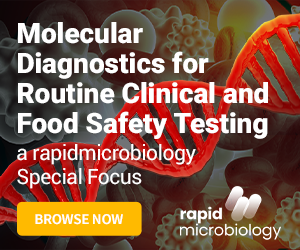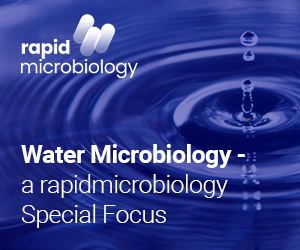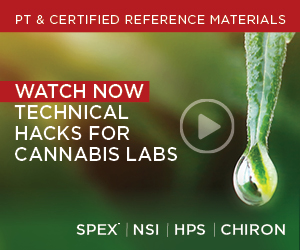Cepheid's Xpert® MTB/RIF Detects TB with Rifampicin Resistance in 2 hours
| Cepheid have announced details of technology expected to revolutionize the speed of diagnosis of Mycobacterium tuberculosis (TB) and the resistance to common drug treatment for the disease. The new test technology, developed in partnership with Foundation for Innovative New Diagnostics (FIND) and the University of Medicine and Dentistry of New Jersey (UMDNJ), and funded by the National Institute of Allergy & Infectious Diseases (NIAID), will leverage the power of Cepheid's GeneXpert® System to deliver a highly accurate diagnosis of the disease in less than two hours. 'One of FIND's main goals is to help to save the millions of lives that are needlessly lost to TB every year,' says Giorgio Roscigno, Chief Executive Officer of FIND. 'Cepheid's commitment to researching and bringing this test to market has been outstanding, as is their intention to sell Xpert® MTB/RIF on a cost for product basis in the developing world, where it is most needed. We are proud to be working with them on this project.' Rapid diagnosis of TB is vital in areas such as sub-Saharan Africa and Southeast Asia due to the close connection between HIV and TB. Sputum microscopy, which often delivers poor sensitivity in patients suffering from tuberculosis, is almost completely ineffective in those who also have HIV co-infection. The weakened immune system of an HIV-positive person is particularly susceptible to infection, resulting in one third of the 33 million HIV sufferers worldwide infected with TB. Left untreated, 90 percent of these people will die within months of first contracting the disease, reinforcing the urgent need for an accurate and rapid test. 'The need for accurate and rapid detection of tuberculosis is becoming increasingly acute with the development of drug resistant strains and the growing at-risk populations in the developing world,' said John Bishop, Cepheid's Chief Executive Officer. 'The GeneXpert System has a unique level of technical capability never before seen in molecular diagnostics and this capability is on full display with the Xpert MTB/RIF test. Clinicians will now be able to obtain dependable test results for not only detection of TB but simultaneous determination of whether or not it is a drug resistant strain in virtually any clinical setting. Appropriate therapeutic management has been a significant factor in the development of drug resistant strains of tuberculosis and the availability of the Xpert MTB/RIF test should be a breakthrough technological leap forward in helping to ensure proper therapeutic management and in helping to halt transmission. We are expecting to make this test available as a CE IVD Mark product next month.' Xpert MTB/RIF not only detects the presence of TB, but also identifies whether it is resistant to Rifampicin, a common first-line drug for treatment of the disease and a reliable surrogate marker of strains that are multidrug-resistant (MDR-TB). The test is expected to enable physicians to dramatically improve patient outcomes -- possible only with on-demand, actionable results to guide therapy decisions within the timeframe of an initial patient visit. Currently, the most common testing method for TB is the sputum microscopy, or smear test, that has remained largely unchanged in its sophistication and sensitivity for over 100 years. The smear test has been proven to only detect around half of all active TB cases and is not capable of identifying drug resistance. Patients who remain undetected are often co-mingled within general hospital populations, placing others at risk of infection. Due to their low accuracy, smear tests are followed up with culture tests, which offer more accurate results but take several weeks. To determine drug resistance, culture testing can take months to return a result. For patients in the developing world, lengthy turnaround times of current test methods can lead to catastrophic consequences as the chain of transmission grows. 'We designed this test so that it could be used by someone with minimal training,' said UMDNJ's David Alland, M.D. who collaborated closely with Cepheid and FIND with support from the NIAID. 'We're gratified to find that it requires less hands-on work than the acid fast smear, long a standard method to identify tuberculosis, but it is much more sensitive.' |
NOTE: This item is from our 'historic' database and may contain information which is not up to date.
Source : Cepheid View Company Information
Posted on April 6, 2009







